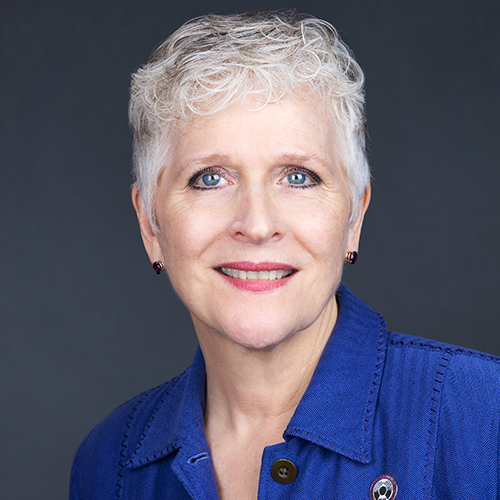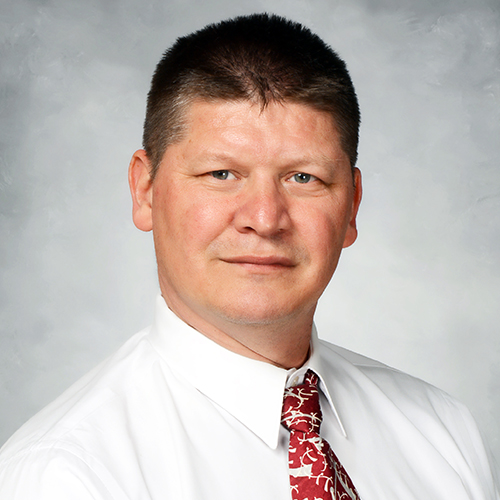 Counseling Skills Online Course(s) & Continuing Education
Counseling Skills Online Course(s) & Continuing Education
Access the latest clinical skills and research for Counseling Skills for IBCLC/Lactation Consultants professional training. These Counseling Skills online courses provide practice-changing skills and valuable perspectives from leading global experts. This Counseling Skills education has been accredited for a variety of CEUs / CERPs and can be accessed on-demand, at your own pace.

Mastering Cross-Cultural Communication Skills: How to Speak and Engage Effectively Across Cultures and Varied Audiences

Kimberly Seals Allers is an award-winning journalist, author and a nationally recognized commentator, consultant and advocate for breastfeeding and infant health. A former writer at FORTUNE and senior editor at Essence magazine, Kimberly’s thoughtful and provocative online commentaries on motherhood and infant health and the intersection of race, class and culture, received over 10 million page views last year.
In addition, Kimberly specializes in issues related to African American motherhood and breastfeeding. In March 2012, she launched Black Breastfeeding 360°, a first of its-kind online multi-media content library on the black breastfeeding experience. She is author of The Mocha Manual to a Fabulous Pregnancy (Amistad/HarperCollins) a hip and informative African American pregnancy guidebook and two other Mocha Manual™ books in the series. She is the founder of MochaManual.com, a pregnancy and parenting destination and blog for African Americans and former editorial director of The Black Maternal Health Project of Women’s eNews.
Kimberly is a graduate of New York University and Columbia University Graduate School of Journalism. A divorced mother of two, she lives in Queens, New York City, with her children and two turtles.
Topic: Raising Our Voice: Breastfeeding Advocacy for Health Care Providers, Professionals, and Volunteers' - [View Abstract]
The word communication comes from the Latin root word meaning “shared” as in a shared language. However, we often find that different practitioners—doctors, nurses, IBCLCs, etc.—each have their own “language”, which is often not the language of mothers and fathers. How do we actually develop a “shared” language? What are the tools needed to better understand the “speak” of mothers in your community? This presentation will outline the challenges of current common communication efforts, highlight best practices from across the U.S. and explain critical cultural nuances of words and communication techniques for mothers and fathers. It will offer a virtual toolkit for understanding the “language” of local parents and how to quickly start speaking that language to improve community engagement outcomes and breastfeeding goals.

Mindful Breastfeeding: How Lactation Professionals Can Support Calm and Connection

Joy MacTavish, MA, IBCLC, RLC is an International Board Certified Lactation Consultant and certified Holistic Sleep Coach focusing on the intersections of infant feeding, sleep, and family well-being. Through her business, Sound Beginnings, she provides compassionate and evidence-based support to families in the greater Seattle area, and virtually everywhere else. She entered the perinatal field in 2007 as birth and postpartum doula, and childbirth and parenting educator. Joy holds a Master of Arts in Cultural Studies, graduate certificate in Gender, Women and Sexuality Studies, and two Bachelors degrees from the University of Washington. She enjoys combining her academic background, analytical skills, and passion for social justice into her personal and professional endeavors. Joy serves as an Advisory Committee Member and guest speaker for the GOLD Lactation Academy. When not working or learning, she can be found homeschooling, building LEGO with her children, or dreaming up her next big adventure.
Topic: Full-Term Breastfeeding/Chestfeeding: Benefits, Considerations, and Ways to Offer Support - [View Abstract]
Topic: Mindful Breastfeeding: How Lactation Professionals Can Support Calm and Connection - [View Abstract]
Topic: Sending Reports: What’s in it for IBCLCs? - [View Abstract]
Topic: Supporting Clients Facing Fertility Treatment - [View Abstract]
Topic: The Intersection Between Lactation, Sleep, and Family Well-Being - [View Abstract]
Topic: Weaning: Supporting Families Stopping Lactation and/or Ending Their Breastfeeding/Chestfeeding Relationship - [View Abstract]
The age-old practice of mindfulness meditation has increased in popularity across the globe over the past four decades and gained traction within the psychological and medical fields. Mindfulness centers on non-judgmental awareness of one’s bodily sensations, thoughts, and emotions in the present moment. It has been scientifically shown to reduce stress, chronic pain, medical and psychological symptoms, and enhance immune function. Mindfulness practices often focus on psychobiological processes, which makes them well suited as in intervention during the perinatal period, and even more specifically breastfeeding. This presentation outlines the ways in which mindfulness can positively impact lactation, during its normal course and especially when there are challenges. As lactation professionals who clinically and holistically support clients, it is beneficial to be able to share mindfulness strategies that can serve as a bridge between the mental, emotional, and physiological realms. Through a greater understanding of the practical aspects of mindfulness, gentle interventions can be incorporated into each feeding session. By supporting calm and connection within the parent and between the parent and infant, the experience of breastfeeding can be enhanced.

View Details / Enroll

View Details / Enroll
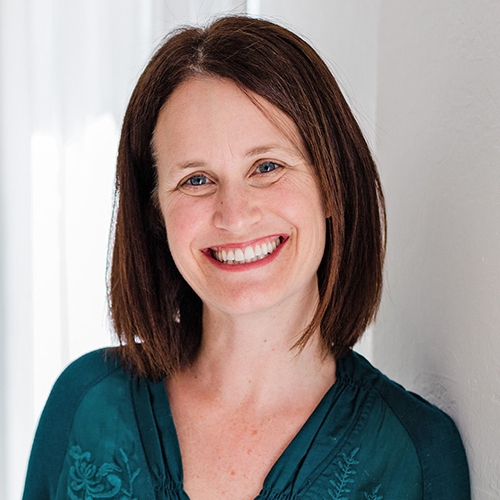
Overcoming Challenges When Providing Virtual Support to Breast/Chestfeeding Families

Robin Kaplan has been an IBCLC since 2009, the same year that she opened up the San Diego Breastfeeding Center. She founded the San Diego Breastfeeding Center Foundation in 2016, a 501(c)3 organization whose mission is to reduce breastfeeding disparities among families of color and low-income families, as well as provide scholarships for women of color to become IBCLCs.
Robin was the founding host of the Boob Group podcast and published her first book, Latch: a Handbook for Breastfeeding with Confidence at Every Stage in 2018. Robin’s center has been a clinical training site for the UCSD Lactation Consultant program since 2015.
In 2019/2020, Robin helped write the curriculum for the University of California San Diego Lactation Educator Counselor program and was the Program Manager for the UCSD Curriculum Development Team for the Pathway 1&2 Lactation Consultant program. Robin has a BA from Washington University in St Louis and Masters in Education from University of California Los Angeles. Robin is currently attending the Functional Nutrition Alliance to become a Functional Nutrition Counselor.
The need to provide virtual support for breast/chestfeeding families may have been ignited by the pandemic, but telehealth is here to stay. The convenience and flexibility of meeting with families virtually removes barriers, such as location, childcare, and transportation. It also comes with its own set of challenges, such as difficulties reading body language, making connections with our clients, and assessing oral anatomy/milk transfer. Yet, with some intentional preparation, crafty detective skills, open-ended questions, and protocols for complicated situations, you may find that virtual consultations can truly meet the needs of your clients/patients.
This presentation will help attendees think through those important preparations to optimize virtual support.

View Details / Enroll
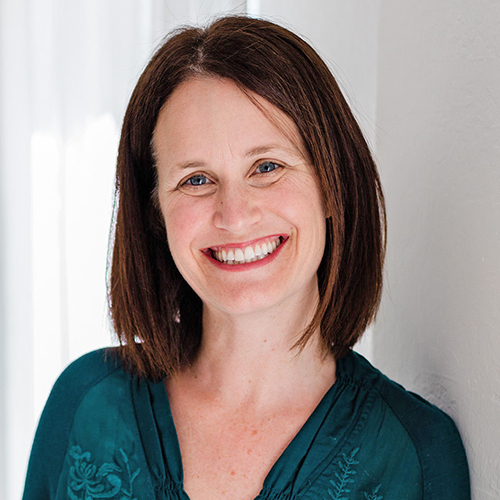
View Details / Enroll
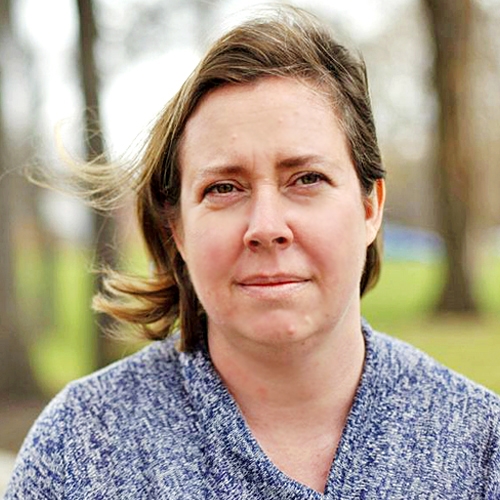
Playing Well with Others: Collaborating in High Conflict/Low Trust Settings

Michelle Pensa Branco MPH IBCLC is a lactation consultant and public health advocate. In addition to her clinical practice, which has included in-hospital, outpatient and private practice settings, she advocates for improved maternal-child health practices at the local, national and global level. She has a particular interest in the impact of trauma to breastfeeding families, models of peer support to improve breastfeeding outcomes and the application of health communication principles to the promotion and protection of breastfeeding. Michelle serves as the Director of Peer Support Programs and provides clinical lactation expertise for Nurture Project International, the only international NGO focused exclusively on infant feeding in emergencies. With Jodine Chase, she co-founded a Canadian non-profit organization, SafelyFed Canada. She is also an active member of the Ontario Public Health Association’s Breastfeeding Promotion Working Group. Michelle has previously served as the Vice-Chair of La Leche League Canada, the Communications Director for the Canadian Lactation Consultants Association as well as the Toronto Coordinator of INFACT Canada. When she is not travelling for work, Michelle stays close to home, living with her family just outside Toronto, Ontario, Canada.
Topic: Keeping the Fox Out of the Chicken Coop: Safeguarding Your Reputation Against Baby Feeding Industry Influence - [View Abstract]
Topic: Playing Well with Others: Collaborating in High Conflict/Low Trust Settings - [View Abstract]
Topic: Watching Our Words: Is Risk-Based Language Always the Right Choice? - [View Abstract]
Collaboration is the foundation of the work of lactation professionals. As allied health providers, the team approach is at the centre of our professional relationships. Differences in professional practice and standards of care are aggravated by health care systems that are fragmented and operate in silos, while the high emotion and urgency of infant feeding concerns interfere with reasoned collaborative decision-making. Where adequate training, workplace policies and management oversight fail, conflicts within the team may escalate to incivility, lateral violence and bullying. IBCLC must be able to name and act when conflict crosses these boundaries.
At a policy level, the problems facing breastfeeding are among the most "wicked" of public health's "wicked problems".
In perpetually resource- limited settings, the challenges of policy-making, good governance and innovative programs require effective collaboration and co-operation within and across organizations.
Limited time and energy is available for the enormous work required to provide excellent care to families and create societies that fully support them to breastfeed their children for as long as they wish to. Moreover, because of the intensity of the "wicked" problems we face and the urgency of resolving them both in individual cases and at the policy level, conflict and erosion of trust often occur. Because we cannot only work with those we would like to work with to accomplish our goals, we must learn "stretch collaboration", explored using Adam Kahane's model of working in absence of friendliness, agreement or trust.

View Details / Enroll
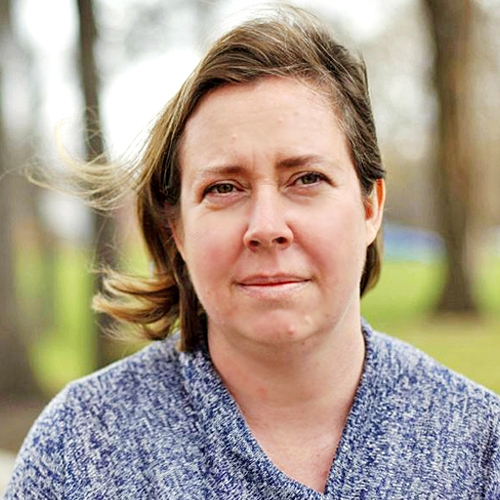
View Details / Enroll
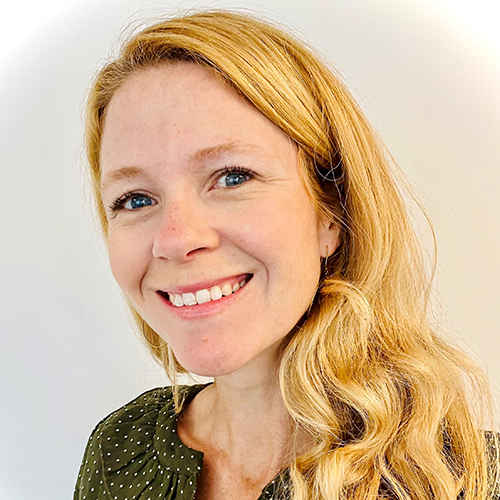
Seeing the Bigger Picture: Finding Clues in Our Breastfeeding Clients' Surroundings

Johanna Sargeant is an International Board Certified Lactation Consultant, teacher and writer based in Zurich, Switzerland. She is passionate about utilising her background in education, biological science, psychology and language to empower parents with empathetic support and evidence-based information through her private practice, Milk and Motherhood.
Originally from Australia, Johanna provides much-needed English-speaking support to many thousands of parents throughout Switzerland and across Europe, and has recently been writing new education modules for the European Society of Paediatric Research and the European Society of Neonatology. She has taught at the University of Zurich, has spoken as a panelist for the WHO's Baby Friendly Hospital Initiative congress in Geneva, has been an expert speaker and facilitator for Google, and has presented at a wide variety of international conferences. The complexities of her personal feeding experiences fuels her passion for providing knowledgeable, guilt-free infant feeding support globally.
Topic: Mastering Lactation Conversations: Creating Successful and Achievable Care Plans - [View Abstract]
Topic: Seeing the Bigger Picture: Finding Clues in Our Breastfeeding Clients' Surroundings - [View Abstract]
Topic: When Evidence and Empathy Aren't Enough: Changing Your Lactation Practice to Boost Client Success - [View Abstract]
Home visits play an integral role in the practice of many Lactation Consultants around the world. There are undoubtedly many benefits to meeting our clients in their own space, and one of these is that we can immediately garner a wealth of valuable information within a very short period of time. Along with learning a variety of quick and easy ways to stealthily, respectfully gather vital information about important feeding practicalities, this presentation will explore mental health, cultural humility and personal safety. We will explore the array of clues and red flags that may unknowingly surround you with regard to the clients' mental health and their overall safety. Additionally, as someone who works with clientele from over 75 different countries, Johanna shares what she has learned regarding the variations and commonalities between cultures when it comes to performing home visits, and which behaviours we can adopt to ensure continued humility and respect.
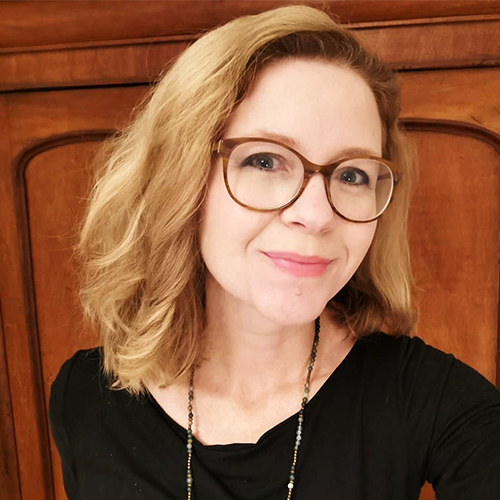
View Details / Enroll
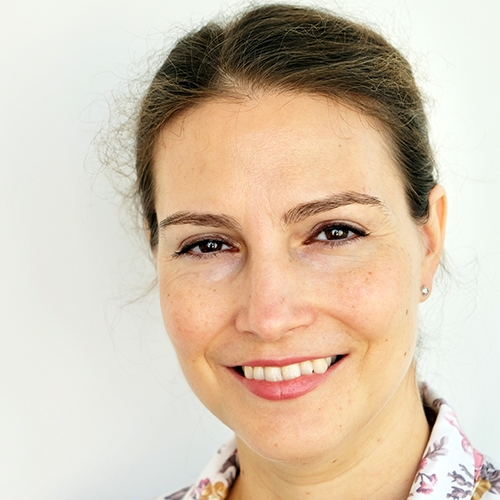
Talking to Babies: Basic Communication Skills for Lactating Parents and Healthcare Specialists

Dr. Smaranda Nay is a Family Doctor, an IBCLC, a Personal Development Counselor and a mother. She has been studying Transactional Analysis psychotherapy since 2007 and is now in her second year of training to become a Somatic Experience therapist. She uses her knowledge to teach parents how to connect with their children and how to attune to their babies’ needs, both through individual counselling sessions and in classes. She is part of the Romanian Lactation Consultants Association and holds lactation education courses for future IBCLCs. She gives lactation counselling consults and holds breastfeeding and childcare courses.
She also holds personal development workshops for teenagers and adults, collaborating with non-formal education organizations and schools. She is particularly curious about the development of an attuned relationship between people and building intimacy and trust. Working with babies, she observes the parent-child connection and explores its potential in healing and growth, and how it impacts the future development of the individual. Working with teenagers and adults, she facilitates ways in which childhood disruptions can be healed in the present.
This is a presentation on how explaining things to babies of all ages, including newborns, can help solve difficult moments during lactation in the parent-baby relationship and lead to healthy parenting. Communication blocks happen frequently due to changes, events, and anxiety, and sometimes they can interfere with breastfeeding/chestfeeding. At least some of these blocks can be solved by communicating with the baby in an open, compassionate, and respectful way.
Lactation and healthcare professionals will learn how to approach such situations, what questions to ask and what suggestions to make to parents so they and their babies can overcome the situation. Lactation and healthcare professionals will also learn about different cases that I have encountered, how the method was applied and what were the results.
I deeply believe that the way we talk to babies, communicate with them and how we teach parents to do that is an essential part of our work. On the long term, it can make an important difference to how those babies are treated, respected, parented, educated, and raised and what kind of adults they will become.

View Details / Enroll
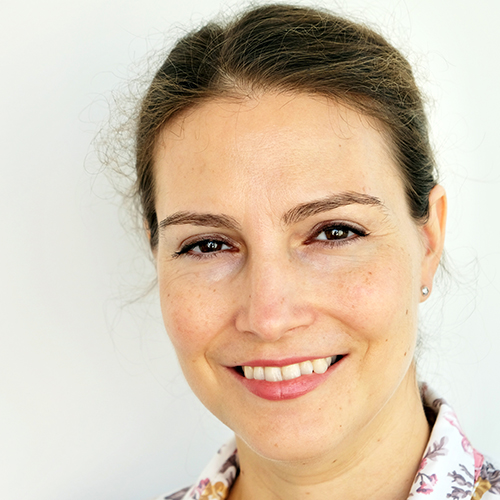
View Details / Enroll
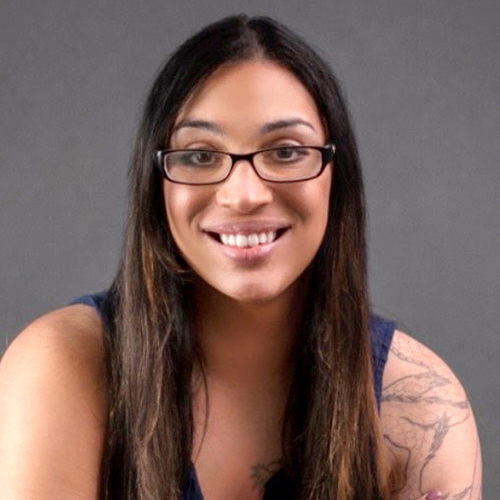

Shondra Mattos is an IBCLC, Entrepreneur & Speaker who delivers progressive, up-to-date lectures that challenge the current standard of Lactation Care. She is widely regarded as the go-to source for those looking for clear, understandable clinical knowledge.
In 2018, Shondra rebranded her lactation practice Mattos Lactation and provided location-independent lactation support to families across the country. In 2020 she founded Lactnerd LLC with the focus of helping healthcare providers gain knowledge while conquering the intimidation of learning the complex science of Lactation.
Through her companies- Lactnerd & Mattos Lactation - she provides tools, resources, education & mentoring to aspiring and established lactation professionals across the USA.
This presentation will cover skills & strategies of conducting assessments of oral dysfunction in a telehealth setting, a situation many Lactation providers were thrusted into due to Covid-19. Through real life examples of processes & strategies I use in my location-independent practice which specializes in oral dysfunction, the learner will gain practical insight to improve the quality of the virtual lactation visits they provide.

Using a Cool Head When You’re on the Hot Seat: Ethical and Legal Topics That Make Us Sweat, and How to Avoid Getting Burned

Liz Brooks is a private practice International Board Certified Lactation Consultant (IBCLC) and licensed lawyer, with expertise in criminal, administrative, non-profit, ethics, and lactation-related law. Liz offers in-home lactation consultations, and bedside care and teaching in two Baby-Friendly-designated hospitals.
She has been a leader in organizations for IBCLCs, breastfeeding promotion, and non-profit human milk banking. She authored the only textbook on legal and ethical issues for the IBCLC, and writes on health care ethics, equity, and conflict-of-interest in several books, blogs, and peer-reviewed journals.
She is a popular international conference speaker, offering practical tips with wit and wisdom for anyone who works with lactating and human milk-using families. Liz self-identifies as a cisgender hetero white woman with unearned privilege, and uses she/her/hers pronouns.
Topic: Using a Cool Head When You’re on the Hot Seat: Ethical and Legal Topics That Make Us Sweat, and How to Avoid Getting Burned - [View Abstract]
Topic: What’s Too “Friendly” for an IBCLC on Social Media? - [View Abstract]
Topic: Whiners and Deniers: Ethics and Diplomacy in Difficult Cases - [View Abstract]
We all understand, generally, that lactation support providers – from licensed primary healthcare providers (HCP) to volunteer peer counselors – owe a “duty of care” to the parents they work with, defined by laws and ethics codes. But many are concerned that they do not know what is really expected of them, in the moment of clinical care, when decisions about how to do things “the right way” must be made. This session will cover the basic of ethics and legal duty as a lactation support provider. Examples from the International Board Certified Lactation Consultant (IBCLC) literature will be used. A few topics that are the most common "hot spots" for practitioners (the ones that make us sweat) will be explored with a few slides, and a lot of free-flow Q&A with session attendees, as we ponder realistic tactics to protect ourselves as practitioners with cool heads and clinical excellence.

View Details / Enroll
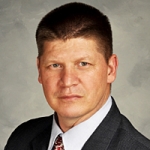

Tom Johnston is unique as a midwife and lactation consultant and the father of eight breastfed children. Recently retired after 27 years in the US Army, he is now an Assistant Professor of Nursing at Methodist University where he teaches, among other things, Maternal-Child Nursing and Nutrition. You may have heard him at a number of conferences at the national level, to include the Association of Woman’s Health and Neonatal Nurses (AWHONN), the International Lactation Consultant’s Association (ILCA), or perhaps at dozens of other conferences across the country. In his written work he routinely addresses fatherhood and the role of the father in the breastfeeding relationship and has authored a chapter on the role of the father in breastfeeding for “Breastfeeding in Combat Boots: A survival guide to breastfeeding in the military”.
Topic: Human Milk Synthesis: Just When You Thought You Knew - [View Abstract]
Topic: New Insights Into the Maternal Child Microbiome - [View Abstract]
Topic: Promoting Provider Self-Efficacy in Breastfeeding Support - [View Abstract]
Topic: Still Swimming Upstream: Breastfeeding in a Formula Feeding World - [View Abstract]
Topic: The Making of Human Milk: A Clinical Update - [View Abstract]
Topic: The Maternal-Child Microbiome or: The “Oro-boobular axis” - [View Abstract]
Topic: The Maternal-Child Microbiome or: The “Oro-boobular axis” - [View Abstract]
Topic: The Perinatal Microbiome - [View Abstract]
Topic: Using Evidence to Develop Clinical Lactation Skills - [View Abstract]
The field of Human Lactation is a new profession. Much of what we use comes from apprenticeship programs and hard learned lessons from a mother’s own personal experience. The lactation profession needs to investigate several of their practices and policies to discover what is evidence based and what is anecdotal evidence. This presentation explores the practices commonly employed in breastfeeding (growth monitoring, infant positioning, the use of assisted feeding devices, and counseling skills) to determine which are evidence based and which will require further study if they are to be used in clinical practice.

View Details / Enroll
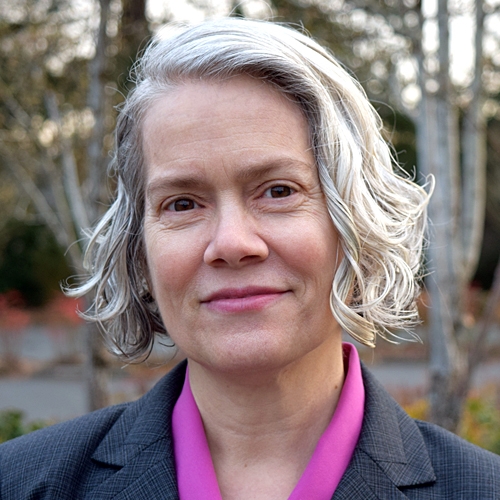
We’re Human, Too: Hidden Dynamics in Our Communication with Clients

Cynthia Good, MS Clinical Psychology, is an International Board Certified Lactation Consultant, Clinical Counselor, author, consultant, and internationally recognized speaker. She is the Director of LifeCircle Consulting, LLC and is Certified in Acute Traumatic Stress Management. She is based in the Seattle, Washington, USA area, where she formerly served as an Adjunct Professor in the Department of Midwifery at Bastyr University where she taught counseling skills and is a therapist at Sandbox Therapy Group where she works with children, adults, and families. Cynthia has a strong interest in the emerging field of lactational psychology. She brings the evidence and insights of psychology and lactation consulting to her presentations, providing information and teaching skills that are essential to understanding and effectively responding to the complex psychosocial realities of families living in diverse contexts. The focus of her presentations includes communication skills and counseling techniques for perinatal care providers; equity, diversity, and inclusion; infant feeding rhetoric; perinatal mental health; perinatal loss, grief, and trauma; ethics; serving as an expert witness in lactation-related court cases; cultural competence and humility; vitamin D; and more.
Topic: Cultural Competence or Cultural Humility? A Roadmap for Lactation Specialists - [View Abstract]
Topic: Heartbroken: Loss and Grief in the Perinatal Time Period - [View Abstract]
Topic: It Wasn’t Supposed to be Like This: Traumatic Birth, Traumatic Stress, and Breastfeeding - [View Abstract]
Topic: My Brain is Doing What? Bias, Ethics, and the Lactation Specialist - [View Abstract]
Topic: Perinatal Mental Health Screening: A Primer for Lactation Specialists - [View Abstract]
Topic: The IBCLC as Expert Witness: Role, Strategies, and Resources - [View Abstract]
Topic: The Rug Pulled Out from Underneath Me: Depression During Pregnancy and After Birth - [View Abstract]
Topic: Unpacking the Invisible Diaper Bag of White Privilege: An Overview of Racial Inequities in Breastfeeding Support - [View Abstract]
Topic: We’re Human, Too: Hidden Dynamics in Our Communication with Clients - [View Abstract]
On the best of days, providing quality lactation care to families in the perinatal time period is a challenging endeavor. IBCLCs, for example, are mandated to effectively utilize history taking and assessment skills, a broad collection of skills to assist the dyad, general problem-solving skills, skills related to techniques and devices, and skills needed to develop, implement and evaluate an individualized feeding plan in consultation with the client. Communication skills are the bedrock of everything a lactation supporter must do. Our training in this area logically tends to focus on understanding and responding to the human context of the dyad. However, there are two sides to communication in a lactation-related encounter: the client and the care provider. And, care providers are also human. In spite of our compassion and good intentions, we are impacted by the stresses, losses, and traumas of life, which can then impact our ability to work well with our clients. This presentation addresses common challenges in the lactation supporter’s own context (such as cognitive load, burnout, and traumatic triggers), their impact on communication, and strategies that can help us improve our ability to communicate effectively with our clients.

View Details / Enroll









